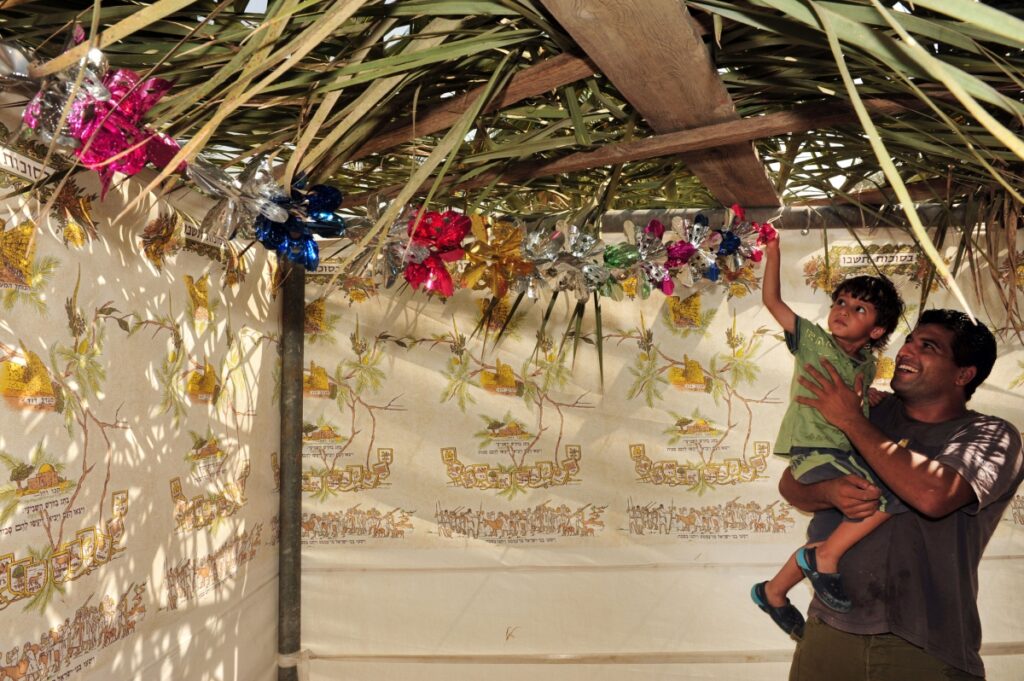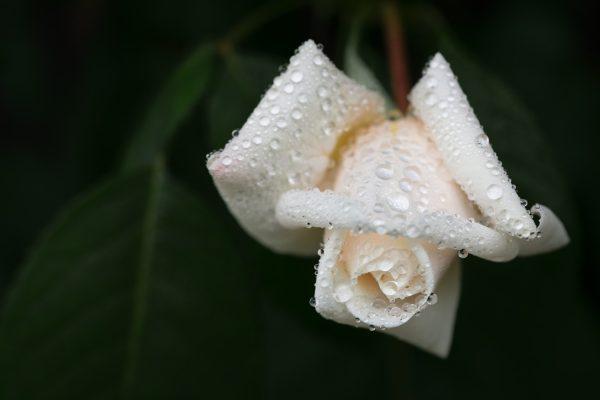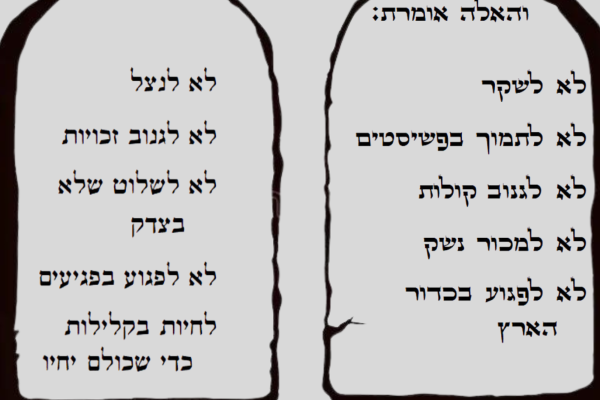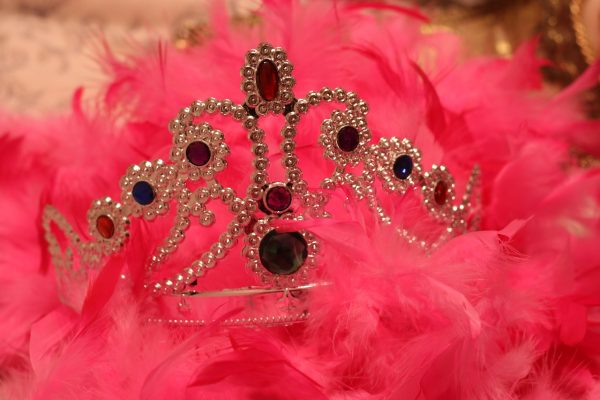תִּיבוּ תִּיבוּ אוּשְׁפִּיזִין עִילָאִין, תִּיבוּ תִּיבוּ אוּשְׁפִּיזִין קַדִּישִׁין
tivu tivu ushpizin ila’in! tivu tivu ushpizin kadishin!
Be seated exalted guests! Be seated, holy guests!
I invite to this meal these exalted guests: Abraham, Sarah, Deborah, Isaac, Jacob, Ruth, Moses, Miriam, Hannah, Aaron, Joseph, Tamar, Batsheva and David.
On the first night:
Please, Abraham and Sarah, let all the exalted guests, the ushpizin ila’in, sit with us and with you. [Any other guests representing hesed– caring?]
2nd night: … Deborah and Isaac, … [other guests representing gevurah– firmness?]
3rd: … Jacob and Ruth, … [other guests representing tiferet – splendor, balance?]
4th: … Moses and Miriam, … [other guests representing netzakh – enurance, prophecy?]
5th: … Hannah and Aaron, … [other guests representing hod – majesty, prayerfulness?]
6th: … Joseph and Tamar, … [other guests representing yesod – foundation, creativity, righteousness?]
7th: … Bathsheba and David, … [other guests representing malkhut/shekhinah – presence, receptivity, royalty?]
May it be your will, ETERNAL SOURCE, that your Shekhinah dwell among us and that you spread a Sukkah of peace over us and may abundant life flow to us from there. O One full of blessing, attend well to the prayers of the hungry and the thirsty, providing them with dependable bread and life-saving water.
ושאבתם מים בששון ממעייני הישועה . x2
מים, מים, מים מים הוי מים בששון .x2
הי, הי, הי, הי,
מים(x6) בששון.
מים(x6) בששון.
Ushavtem mayim b’sason mimayney hayeshua (2)
Mayim (4) Hey, mayim b’sason (2)
Hey, hey, hey, hey
Mayim (6) b’sason
Mayim (6) b’sason
You shall draw water with joy from the wells of salvation/liberation!
Hey! Water with joy!












